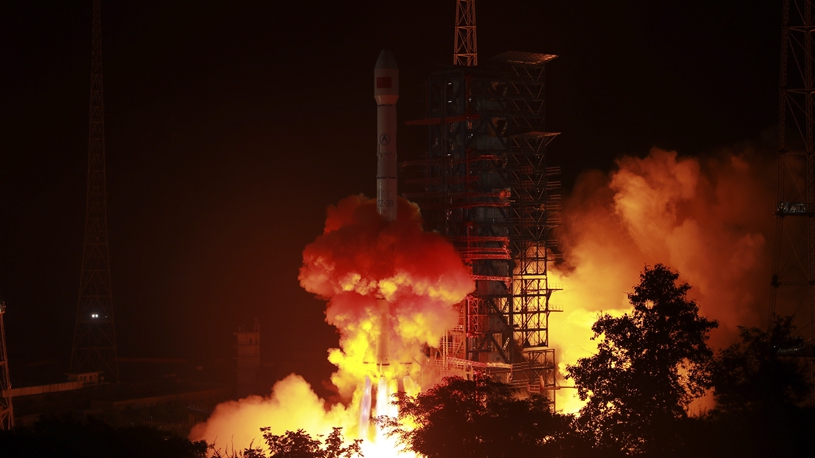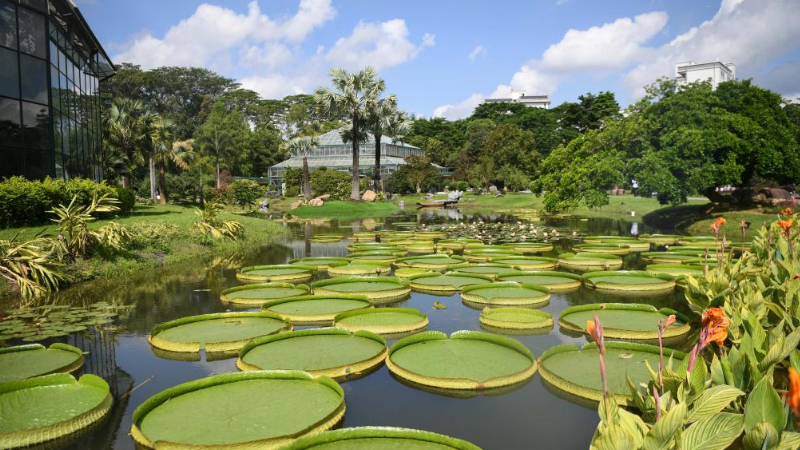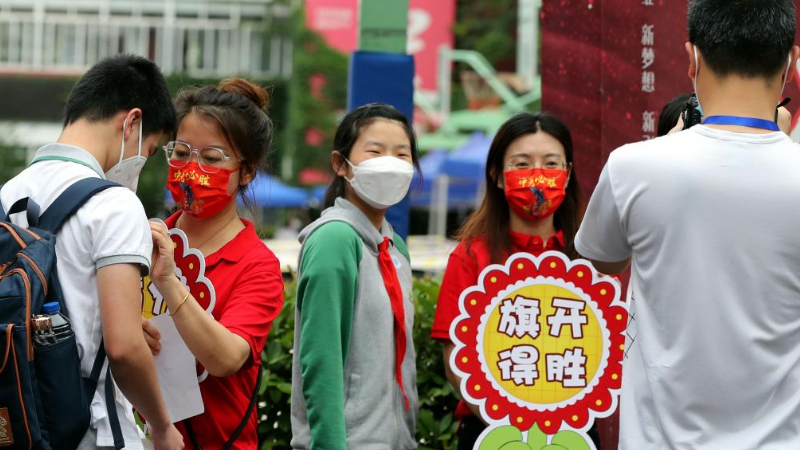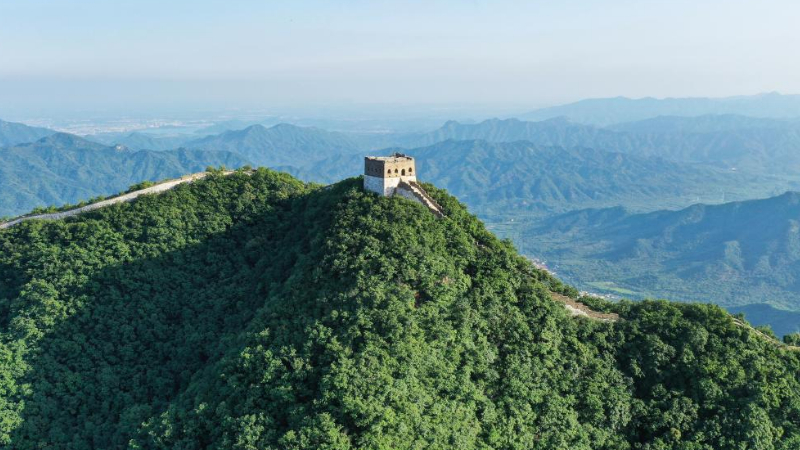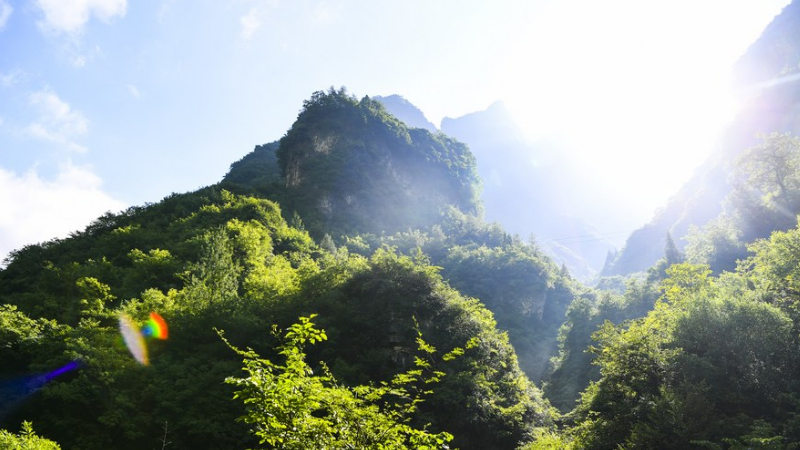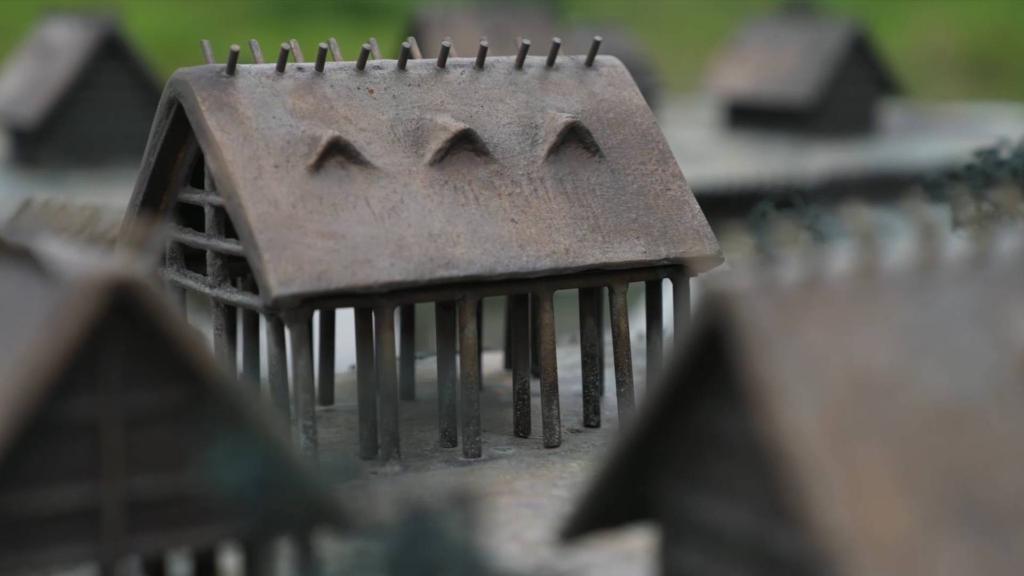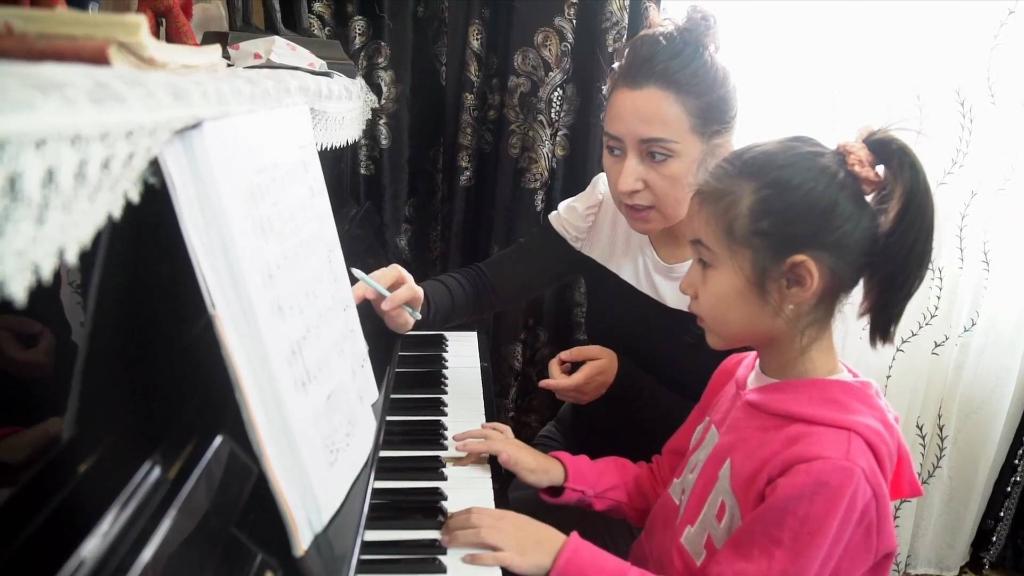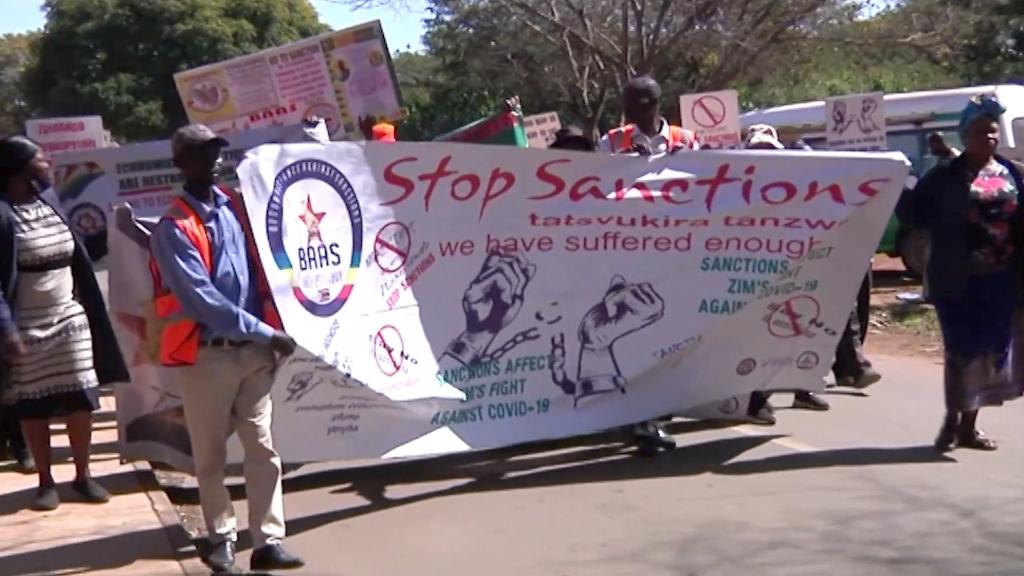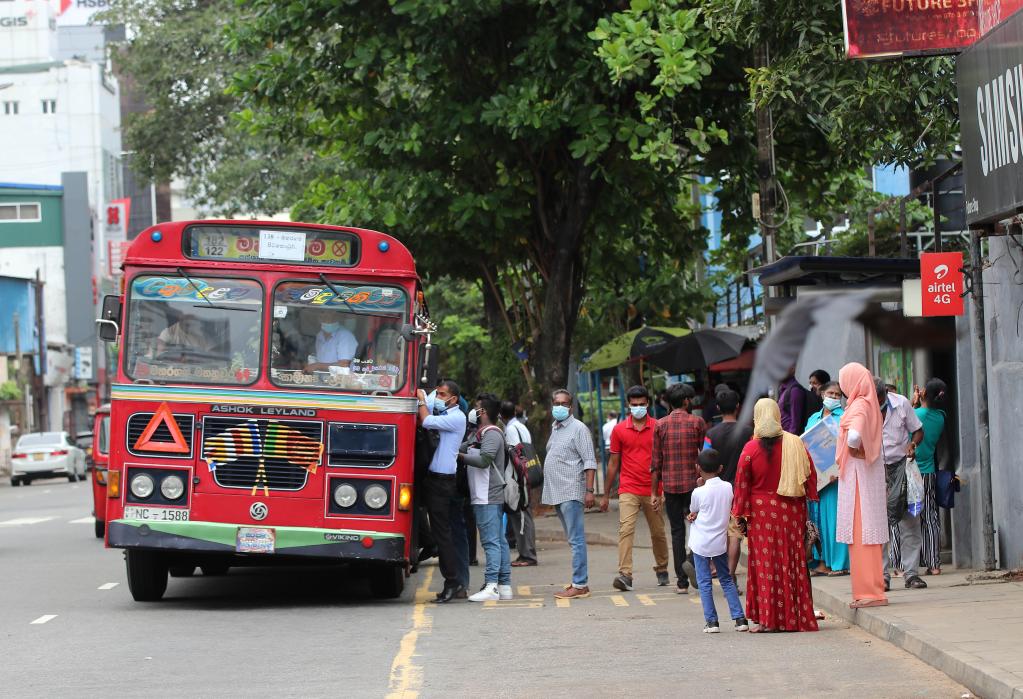
People wait for city bus at a bus stop in Colombo, Sri Lanka, on July 11, 2022. Due to severe shortage of fuel, local residents are more likely to travel by bus and bicycle in Colombo. (Photo by Ajith Perera/Xinhua)
- Sri Lanka has been troubled by a shortage in fuel, medicines, food, gas and other essentials this year, with food prices soaring and inflation reaching a record high.
- Prime Minister Ranil Wickremesinghe said on July 5 that the country is "bankrupt," and that the ongoing economic crisis was something that could not be solved within a short period of time.
COLOMBO, July 13 (Xinhua) -- A state of emergency was declared in Sri Lanka on Wednesday, the Prime Minister's Office said, after President Gotabaya Rajapaksa left for Maldives amid a severe economic crisis which has sparked severe protests.
Police have imposed a curfew in the Western Province, including the capital Colombo, the Office said.
A military aircraft carrying Rajapaksa landed at the Velana International Airport at around 3 a.m. local time Wednesday (2200 GMT Tuesday), Maldivian media reported.
The president left hours before his resignation is expected to be announced.
ECONOMIC WOES
Sri Lanka has been troubled by a shortage in fuel, medicines, food, gas and other essentials this year, with food prices soaring and inflation reaching a record high. Prime Minister Ranil Wickremesinghe said on July 5 that the country is "bankrupt," and that the ongoing economic crisis was something that could not be solved within a short period of time.
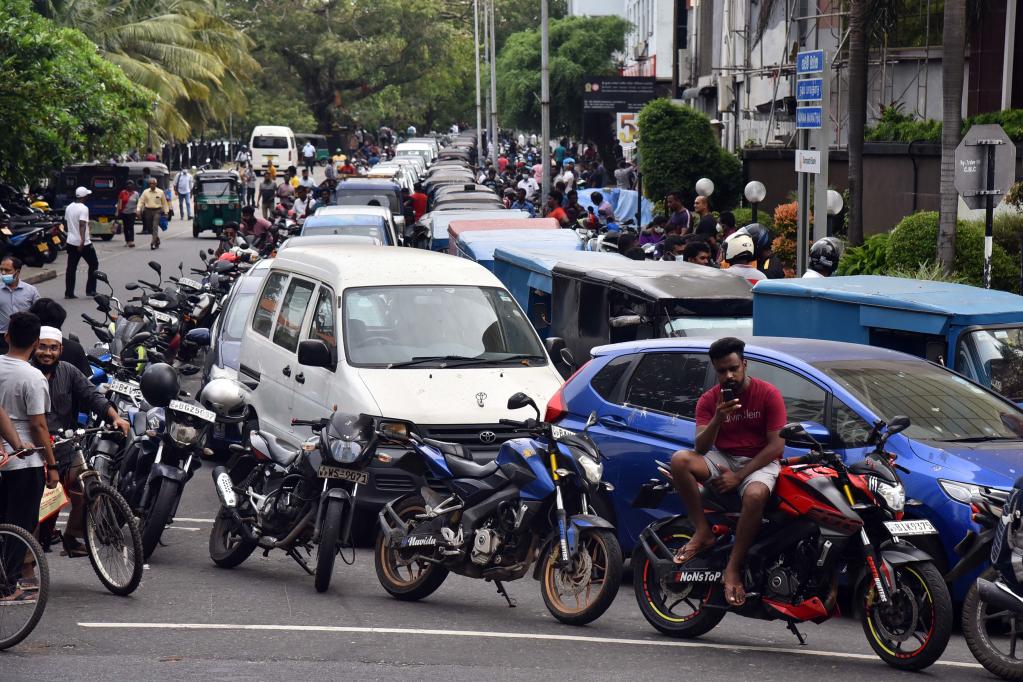
Vehicles wait to get fuel in Colombo, Sri Lanka, on July 7, 2022. (Photo by Gayan Sameera/Xinhua)
On June 12, the country's energy minister said Sri Lanka would introduce a weekly fuel quota system for vehicles given the difficulties in purchasing fuel. From June 27, fuel filling stations across the country started to issue tokens for consumers as only limited stocks of fuel were available, and the state-run Ceylon Petroleum Corporation has been supplying fuel only for essential services, including power generation.
More than 6.2 million people in the country with a population of around 22 million are food insecure, and 61 percent of households are reducing the amount of food they eat, the World Food Program said on July 6.
FACTORS BEHIND CRISIS
Experts say internal and external factors, including the country's largely homogeneous economic structure and the impact of the COVID-19 pandemic, have crippled the economy in recent years.
As a legacy of colonization, especially by Britain, Sri Lanka's economy has been heavily dependent on a few agricultural products, such as tea and rubber, which is made worse by a lack of resilience against risks. Economists have urged the government to ramp up industrialization and promote strategic industries.
In 2020, the pandemic caused a dramatic drop of earnings from tourism and workers' remittances -- vital sources of the country's foreign currency earnings -- as some economists warned that Sri Lanka might not be able to repay its foreign debts.
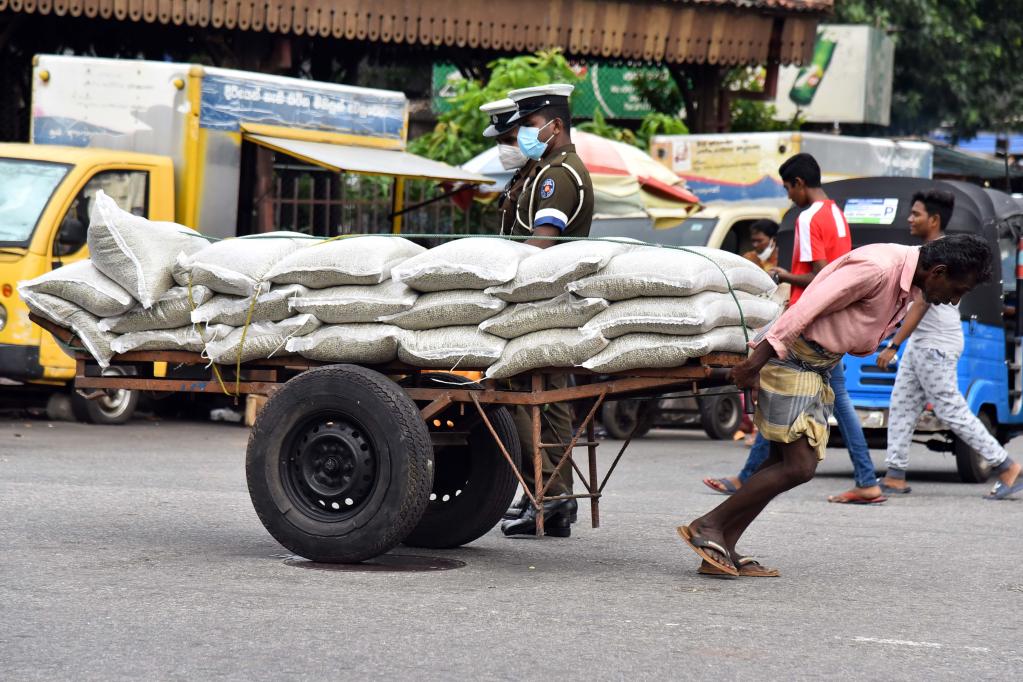
A porter transports sacks of dry food along a street in Colombo, Sri Lanka, on July 7, 2022. (Photo by Gayan Sameera/Xinhua)
In April, Sri Lanka received 248.9 million U.S. dollars in workers' remittances, a drop of over 50 percent compared to the same period last year, the central bank said in May.
Sri Lanka welcomed over 2.3 million tourist arrivals in 2018, the highest in its history, which dipped to 1.9 million in 2019 following the Easter Sunday bombings. In 2020 and 2021, the number dropped dramatically due to the pandemic.
On May 4, then Finance Minister Ali Sabry said the country's current useable foreign reserves were less than 50 million U.S. dollars.
POSSIBLE WAY OUT
Sri Lanka is now in discussions with the International Monetary Fund for an Extended Fund Facility arrangement, which will help it pay for immediate needs and revive the economy, but it needs a functioning government to continue the negotiations.
Sri Lankan Speaker of Parliament Mahinda Yapa Abeywardena said Monday that political party leaders have decided to elect a new president on July 20 through a vote in parliament, and to form an all-party government under the new president, which will take steps to continue the supply of essential services. ■

